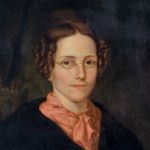
Students majoring in non-science disciplines often have little exposure to computational thinking and working with computer code. At the same time, digital methods of analysis exert growing influence on the practice of many disciplines in the humanities and social sciences. The Wheaton College Digital History Project seeks to bridge this gap using tools from the field of digital humanities.
- Teaching historical methods through transcription and markup of primary sources with TEI*-conformable XML**
- Making hidden collections accessible
- Encouraging collaborative research and pedagogy
- Exploring the intersections of history and digital media
For a summary of the project and its contexts over the past ten years, see our article Discipline-Specific Learning and Collaboration in the Wheaton College Digital History Project. We report on our long-term collaborations, the development of the TEI Archiving, Publication, and Access Project as a site for publishing our students’ work, and ideas for laboratory sessions for teaching students TEI as a new phase of the project.
*Text Encoding Initiative
**eXtensible Markup Language
WCDHP Timeline
2014
Students in History 302, Junior Colloquium (Methods for History Majors), worked in pairs to transcribe and mark up page spreads from the day book of Laban Morey Wheaton.
Students in History 233, U.S. Women, 1790-1890, transcribed and marked up the first issue of Rushlight, the Wheaton literary magazine, which students of Wheaton Female Seminary published with the help of their instructor Lucy Larcom in 1855.
2013
Students in First Year Seminar, History and Culture in the Digital Age, proofread and mark up page spreads from Eliza Baylies Wheaton’s pocket diaries
2012
Students in First Year Seminar, History and Culture in the Digital Age, transcribes and marked up page spreads from the daybook
Students in History 233–U.S. Women, 1790-1890–transcribed page spreads from the daybook
2011
Proof of concept for Encoding Historical Financial Records through meeting at Wheaton College, sponsored by Start-Up Grant from NEH Office of Digital Humanities
Poster on Encoding Historical Financial Records presented at DH 2011
2010
Poster/demo on 1862 travel journal presented at DH2010
Students in History 302, the methods course for History majors, transcribed and marked up page spreads from the daybook and wrote about them for the History Engine
2009
Poster on Encoding Financial Records presented at TEI Members Meeting
Students in History 302 began to transcribe and markup page spreads from Laban Morey Wheaton’s 1828-1865 daybook
2008
Students proofread and copyedited Eliza B. Wheaton diaries and travel journal
2007
Students began to digitize ephemera from 1862 European journey undertaken by Eliza B. Wheaton, her husband Laban Morey Wheaton, and his cousin and business partner David E. Holman
2006
Students transcribing and marking up pocket diaries and travel journal embarked independently on research in Norton, Massachusetts, cemeteries to learn more about the people mentioned in the texts
2005
Students began to transcribe and markup pocket diaries of Eliza B. Wheaton, founder of Wheaton Female Seminary
2004
Students in History 232, U.S. Women since 1869, transcribed and marked up Wood’s journal
Zeph Stickney identified journal of Maria E. Wood, music teacher and daughter of a Baptist minister, for transcription and markup by students
Workshops on TEI/EAD held at Wheaton College